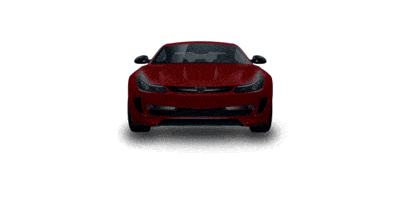When you’re buying a car, there are many factors to consider before you make your final decision. The decision to ‘rent lease or buy a car’ with the option to buy has long-term financial implications that can be easily overlooked. To help you choose the best option, here are some helpful hints.

Three Main Options of Car Purchasing

Car buyers can choose from three basic options.
Lease a Car
The first is to lease a car, meaning that you rent the vehicle for a specified period. You don’t own the car during this time, and when the lease expires, you return the car and receive no equity in it.
Rent a Car
The second option is to rent a car and test drive it for your required time, a day or a week. You will experience the vehicle but not be responsible for any purchases afterward.
Buy a Car
The other option is to buy a car in which you take ownership of the vehicle once you’ve made all the payments. In both cases, you can use your credit or that of a co-signer to finance the purchase.
Which option is right for you?

It depends on what your needs are. In some cases, leasing may be less expensive than buying, but if your situation changes over time (for example, if you become unemployed or want to move out of state), then you could find yourself trapped paying for a car that you don’t need.
Here are several factors to consider when deciding between a lease and a purchase.
Credit score: If you have a strong credit score, you may be able to get a low-interest rate on a car loan. However, if you can’t make the payments, your credit will take a hit, and you could end up owing more overall than the difference between the car’s market value and its loan balance.
Financial goals: If you plan to sell the car in two years to help save for retirement, for example, buying it might be the best choice. And if you’re planning to drive for only a few more years before retiring, leasing might make more sense because of lower monthly payments.
Car characteristics: Leasing is generally better if you want a new car every three years or less because it has lower monthly payments and fees than if you bought the car. Leasing is usually better if your primary transportation needs are work-related and don’t involve long commutes or frequent travel outside of your local area.
Liability: The most significant difference between leasing and buying is the liability for repairs. Leasing a car means more freedom from worries about maintenance and major repairs. You’re responsible for all the maintenance and major repairs when you own a car, which means more out-of-pocket costs.
Cost: The most significant difference between leasing and buying a car is that leasing costs substantially less money upfront. The “total cost of ownership” of a leased vehicle over three years would typically be about three times the payment it would cost to purchase an equivalent car during that period.
Owning beats leasing for most people because of one simple factor:
Control: With an auto loan, you can walk away anytime; with a lease, if something happens and can no longer make your monthly payments, you may be stuck continuing making those payments as well as any penalties.
Rent vs. Lease
Renting a car is an economical way than buying one. It’s also flexible, as you can usually return the vehicle earlier or extend your rental period if needed. When renting, you’re paying for the use of the car rather than ownership of it. What’s more, if you’re planning to travel out of the country, renting a car is a lot easier than trying to drive on your own.
For some travelers, renting a car is still more expensive than buying one outright and selling it when they’re done with it. Examine all aspects of your decision carefully.
Rent vs. Lease: The Facts
Before you rent or lease a car for your next vacation, consider these factors:
Price: Renting can be cheaper than leasing in some situations; leasing might be more affordable in others. You’ll have to look at both cost comparisons and determine which arrangement will save you the most money in each situation.
Lease Terms: You won’t be able to end your lease early if you decide that you don’t want the car anymore before it’s paid off; however, you can sell your leased car at any time instead of having to pay someone else for its value at the end of the lease term.
Bottom Line: Deciding on whether to rent, lease, or purchase the vehicle should be done carefully, with all facts taken into consideration. Your decision should be based on the length of your potential ownership, your current financial situation, and future financial goals. The factors influencing your decision come together to help you choose the option that is best for you. For example, if you expect extra income and have a low credit score, you might want to consider renting or leasing as it may be less expensive than purchasing outright.










